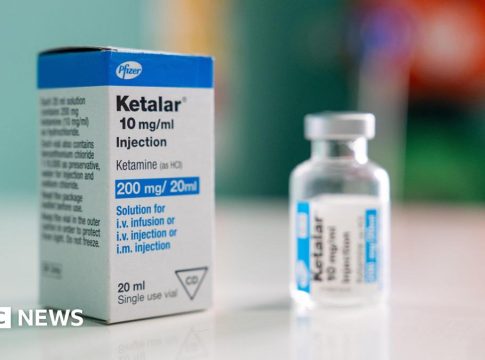Exploring Ketamine as a Treatment for Hard-to-Treat Depression
The quest for effective mental health treatments can often feel daunting, especially for individuals living with difficult-to-treat depression. One promising avenue being explored is the use of ketamine, a medication that has shown potential in offering new hope for those who struggle to find relief through conventional antidepressants.
Ketamine: A New Perspective
Dr. Andrew McIntosh, a psychiatrist at the University of Edinburgh, is working toward establishing a ketamine clinic at the Royal Edinburgh Hospital by the end of the year. This clinic aims to provide an alternative treatment option for patients who have not found success with standard approaches, like Electroconvulsive Therapy (ECT).
Understanding the Challenge:
- Chronic Depression: Some individuals experience depression that resists multiple treatment attempts. For these patients, new avenues like ketamine can be a beacon of hope.
Dr. McIntosh emphasizes that even after exploring a variety of antidepressants and therapies, a small number of people might still struggle to respond positively. Ketamine could offer these individuals a renewed sense of possibility.
Unraveling How Ketamine Works
While the exact mechanisms of how ketamine alleviates depression remain somewhat unclear, various theories are being considered.
- Brain Plasticity: It is suggested that ketamine may enhance the brain’s plasticity, allowing it to adapt and change more flexibly in response to experiences.
- Neural Connections: Another theory posits that ketamine may positively alter the connections between different brain regions, leading to improved mood and emotional regulation.
A Safe Medical Approach:
It’s important to recognize that the ketamine used in clinical settings is significantly different from the substance found in illicit use.
- Controlled Environment: In a clinical context, ketamine is administered in a pure form, under carefully controlled conditions, ensuring a safe treatment experience.
- Dosage Consideration: The dosage used for treating depression is considerably lower than what might be encountered recreationally, which contributes to a reduced risk of unwanted side effects.
A Path Forward for Patients
The establishment of this clinic will mark a significant step forward for Scotland’s mental health landscape, especially for those most in need of innovative treatment options.
Empowering Approaches:
- Explore Alternatives: If you or someone you know struggles with depression that isn’t improving with traditional methods, consider discussing options like ketamine with a healthcare provider.
- Stay Informed: Understanding new research and treatment options is a vital part of managing mental health and advocating for oneself.
The journey through depression can be challenging, but with emerging treatments like ketamine, there is hope for a brighter future. Engaging with mental health resources, connecting with professionals, and seeking out community support can empower individuals on their path toward healing.
In a world where mental health matters more than ever, exploring all possible avenues for treatment can help us foster a supportive and understanding environment for those in need.

Covers wellness, nutrition, mental health, and daily life tips.
Bio: Talia brings a background in health journalism and holistic living to help readers live better, one tip at a time.

